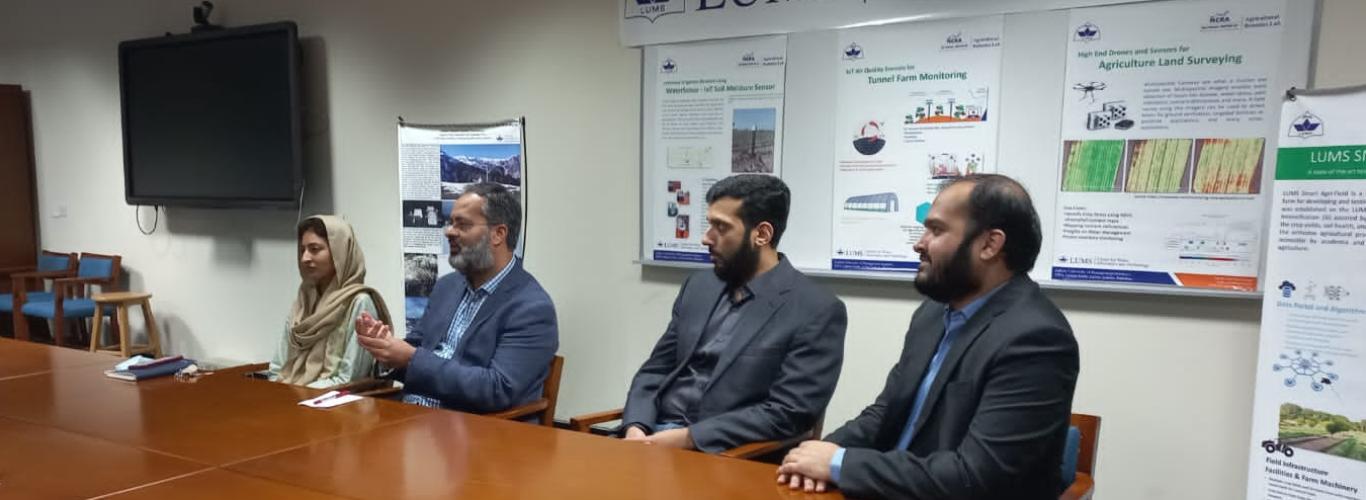WIT hosts Media Briefing to Raise Awareness on Critical Challenges in Water Resource Management
Water resource management is one of the most pressing problems in Pakistan that requires urgent attention from both policymakers and public. To raise awareness about this issue on the World Water Day (March 22), the Centre for Water Informatics and Technology (WIT) hosted a media briefing on 20th March 2023. The event was attended by representatives from several media houses, who were given a tour of the WIT labs followed by a discussion on the challenges in the water and agricultural sectors of Pakistan.
The journalists were introduced to the various cutting-edge tools such as drones and multispectral sensors being used by WIT to conduct its research and promote agricultural technology (Agri-Tech) in the farming sector of Pakistan.
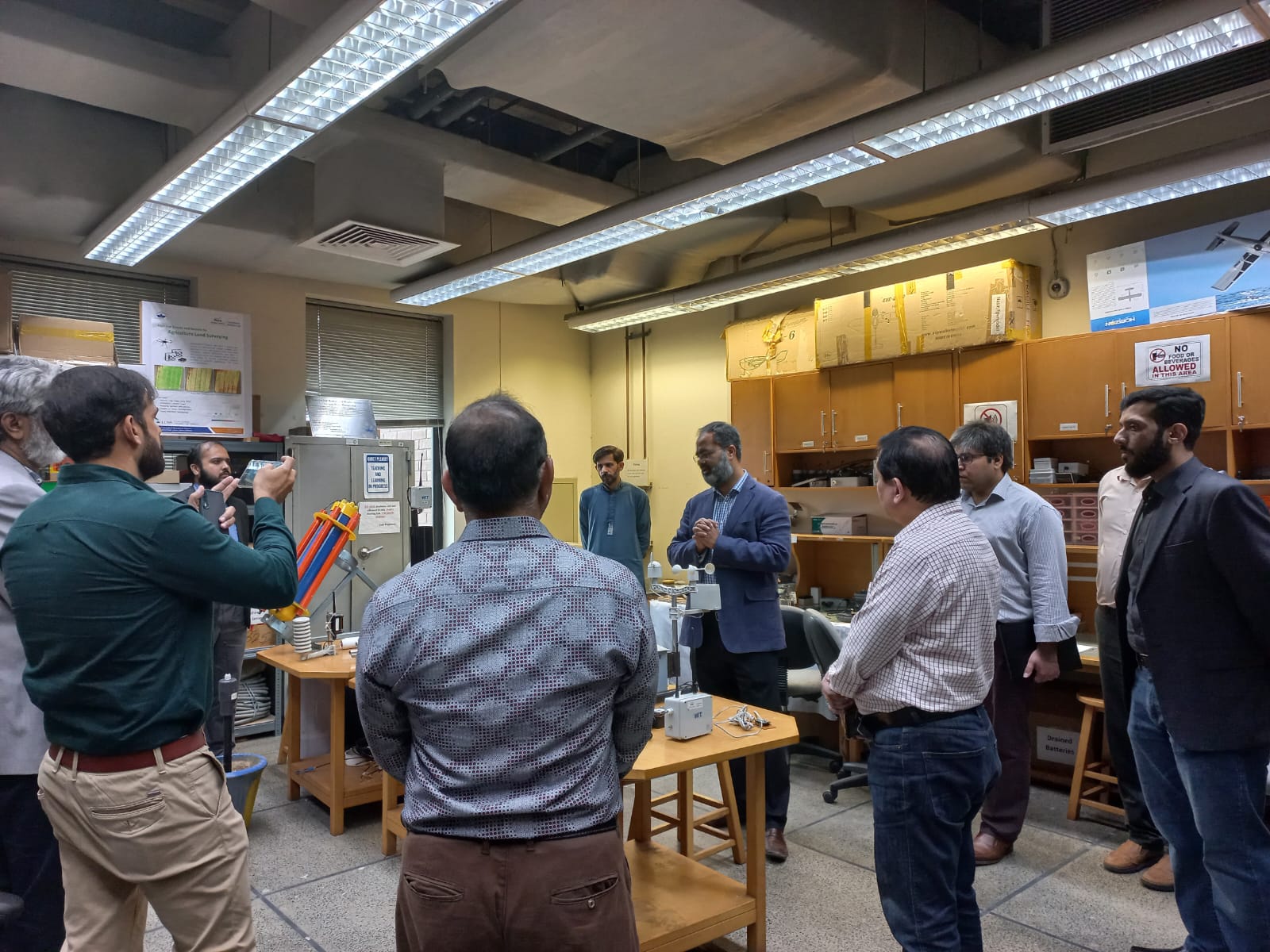
The tour was followed by a discussion on the critical challenges in the water sector of the country and its management on multiple levels. This discussion was led by researchers and faculty at WIT, who shared their insights and research work in addressing this issue. It was discussed that the only way to adequately adapt to such challenges is to be ready for them through effective policy making, early warning systems and by adapting to water-smart agricultural practices.
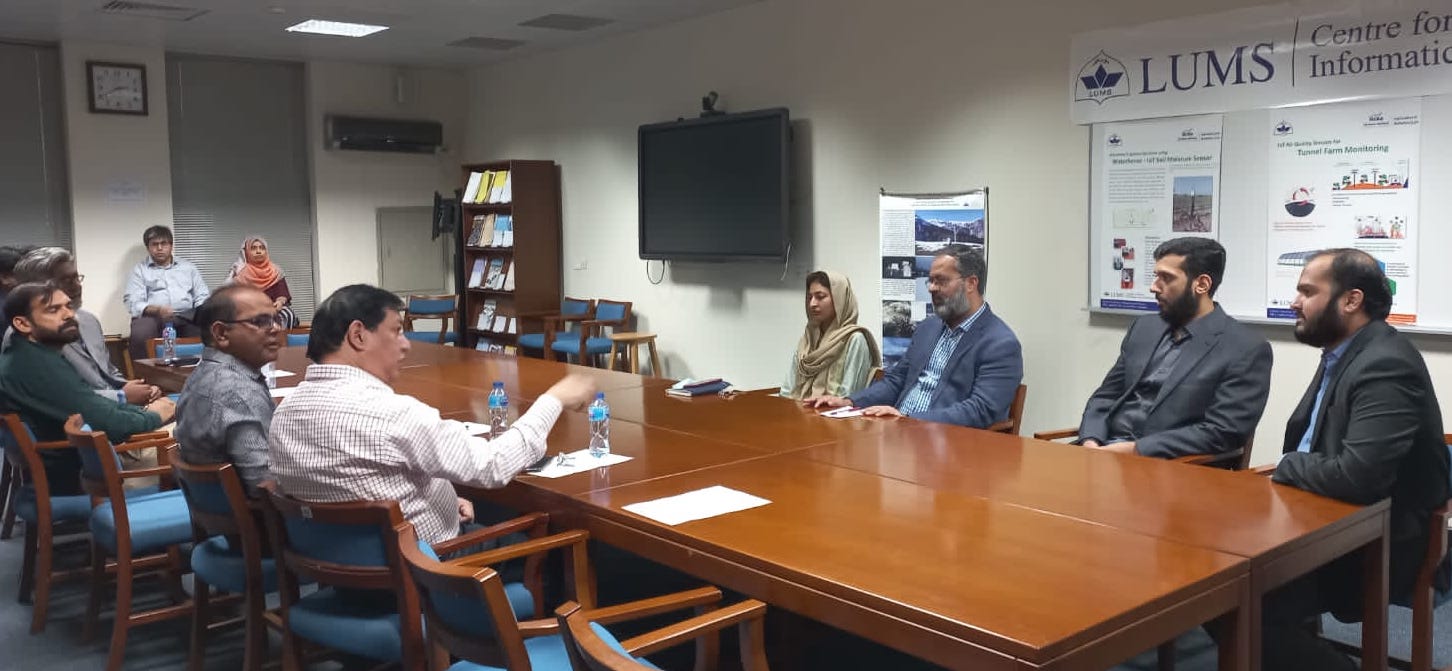
Dr. Abubakr Muhammad, the Centre’s executive director highlighted the significance of commercialization of Agri-Tech and the factors that currently hinder it. Dr. Hassan Jaleel talked about water-smart agricultural practices such as innovative irrigation techniques which can help in combatting the crisis for the agricultural sector. Along with public efforts, effective policy making is also crucial to make any solutions sustainable and easily accessible. Policy makers should make use of computational predictive models to test the efficacy of environmental conservation policies before their imposition. Dr. Talha Manzoor explained how he studies complex interconnections and hidden feedbacks in human-water systems to compensate for unintended consequences of such interventions. Addressing the challenges of the water sector from their root, Dr. Jawaria Ahmad pointed out the importance of efficient monitoring of snow melt and discussed her work-a first of its kind effort to improve cryospheric research in the country. Monitoring hydrometeorological variables in High Mountain Asia can greatly improve snow estimates and lead to effective modelling of snow melt and avoidance of unprecedented flood events.
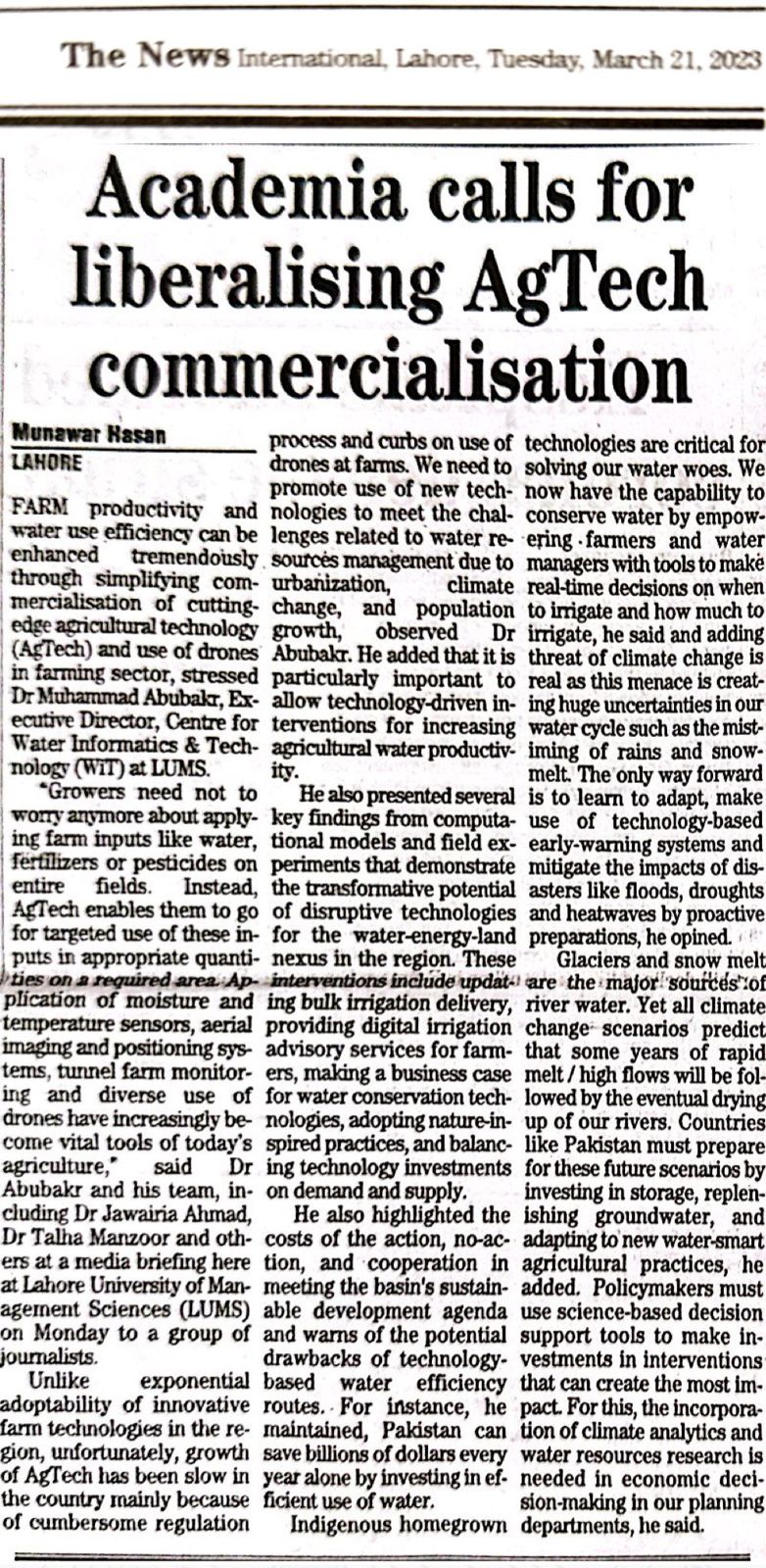
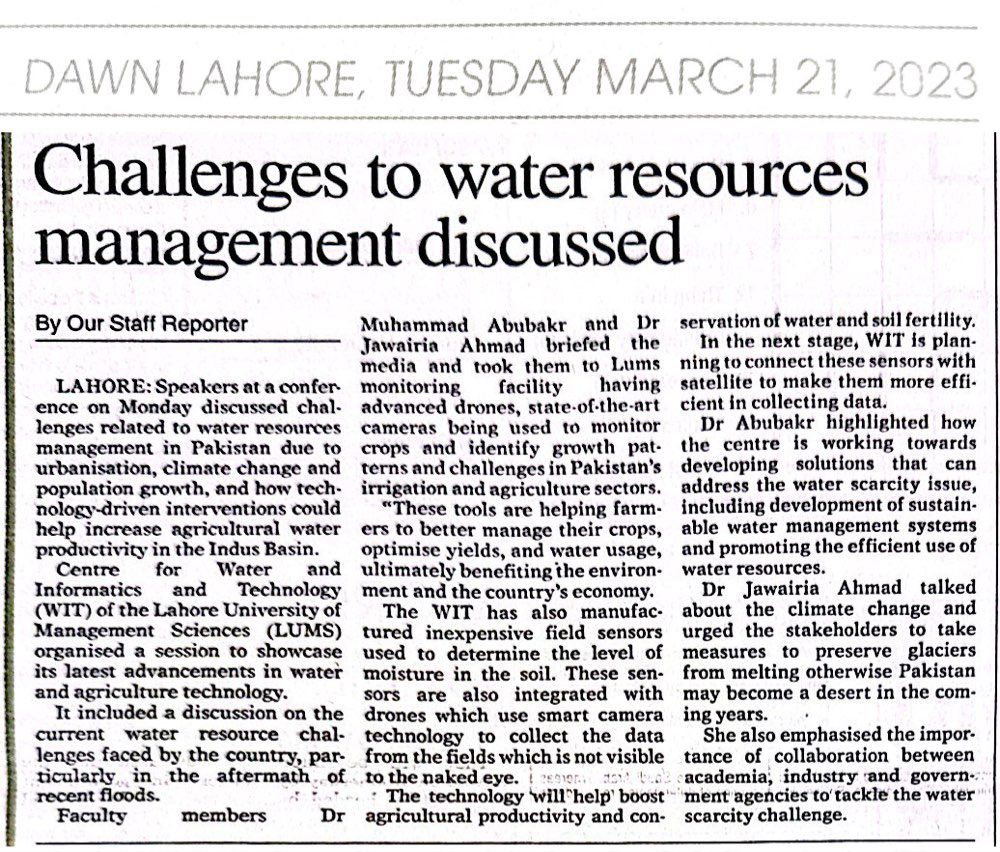
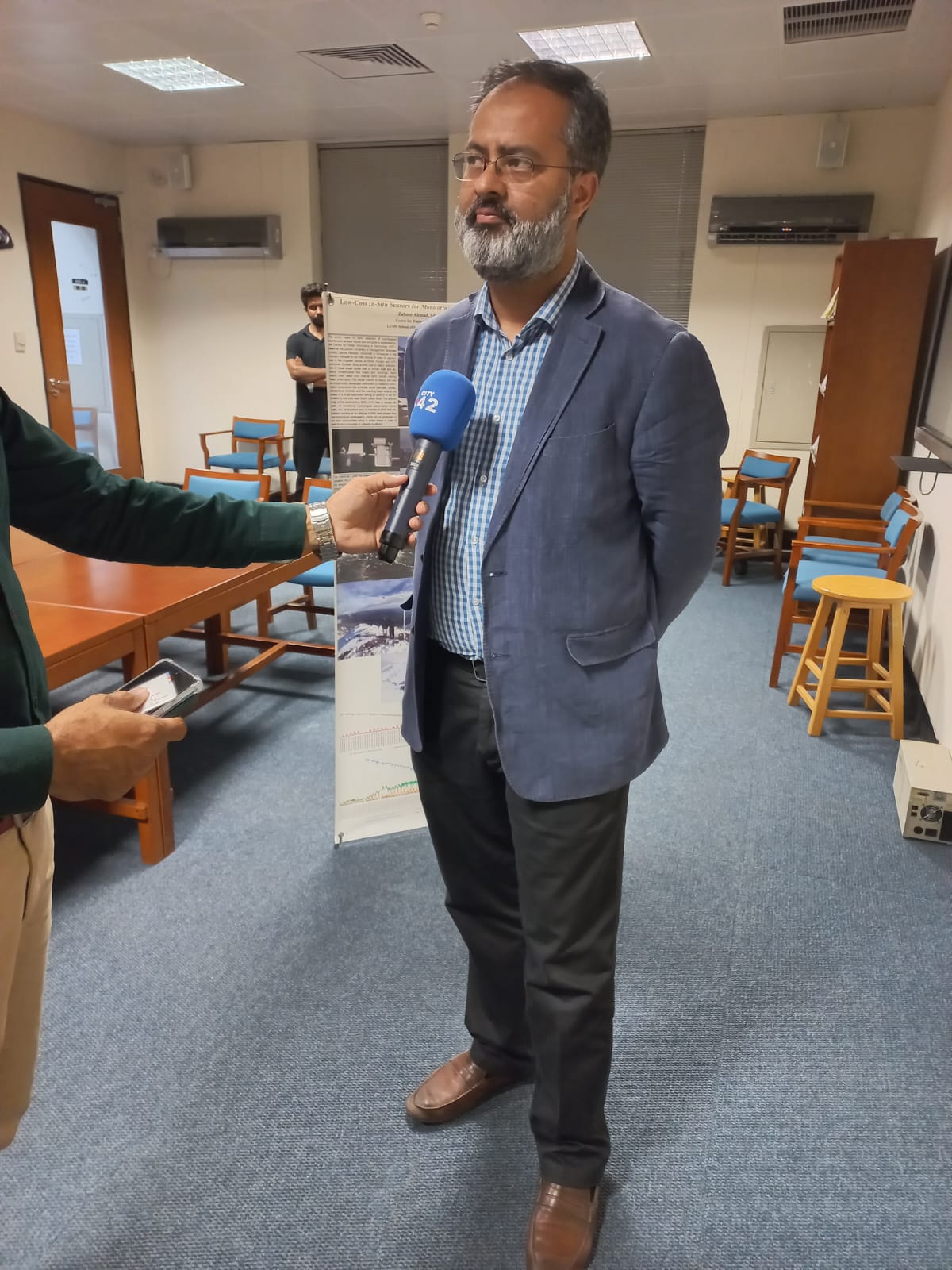
The importance of engaging with the public on issues pertaining to climate change and its implications for Pakistan was highlighted as a part of the discussion. It concluded with the idea that the proposed solutions require coordinated efforts from all stakeholders which can ultimately lead to a sustainable and prosperous future for the water and agriculture sector of the country.

